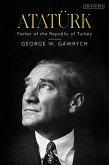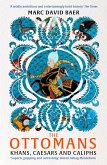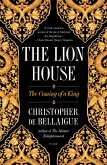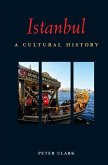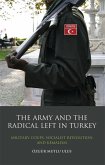Mustafa Kemal Atatürk was one of the most significant political leaders of the twentieth century. He rose from obscure origins to become the founder of the new Republic of Turkey out of the ashes of the Ottoman Empire and go on to radically transform Turkish society. How should one understand Atatürk and his legacy?
In this book, George Gawrych studies Atatürk's career in detail, showing how Atatürk married the traits of the classic military man-of-action with those of the intellectual, theorist and pragmatist as a statesman. Gawrych places Atatürk in the context of his times to reveal how he harnessed wider forces to set Turkey on a path of secular nationalism and comprehensive modernization. His legacy can be seen everywhere in Turkey today, from the role and rights of women in society to the struggle for developing a democracy in the Republic. Gawrych addresses the costs of Atatürk's policies, including the suppression of minorities and the imposition of a cult of personality and authoritarian rule in the name of 'Turkification'. The book presents a nuanced analysis of a complex figure who consciously created a living legacy that still casts a shadow over Turkey's political and intellectual discourse.
In this book, George Gawrych studies Atatürk's career in detail, showing how Atatürk married the traits of the classic military man-of-action with those of the intellectual, theorist and pragmatist as a statesman. Gawrych places Atatürk in the context of his times to reveal how he harnessed wider forces to set Turkey on a path of secular nationalism and comprehensive modernization. His legacy can be seen everywhere in Turkey today, from the role and rights of women in society to the struggle for developing a democracy in the Republic. Gawrych addresses the costs of Atatürk's policies, including the suppression of minorities and the imposition of a cult of personality and authoritarian rule in the name of 'Turkification'. The book presents a nuanced analysis of a complex figure who consciously created a living legacy that still casts a shadow over Turkey's political and intellectual discourse.
This book is not just a biography of Mustafa Kemal Ataturk but also a history of the early Turkish Republic and the Kemalist reforms. George Gawrych has managed to skilfully synthesize extensive original research and scholarly debates to produce a well-rounded and highly readable work. Richly complemented by images and maps, the book will be appreciated by scholars familiar with Turkish history, as well as students wishing to learn more about Ataturk and the formative years of the Turkish Republic. Milena Methodieva, Assistant Professor, University of Toronto, Canada



